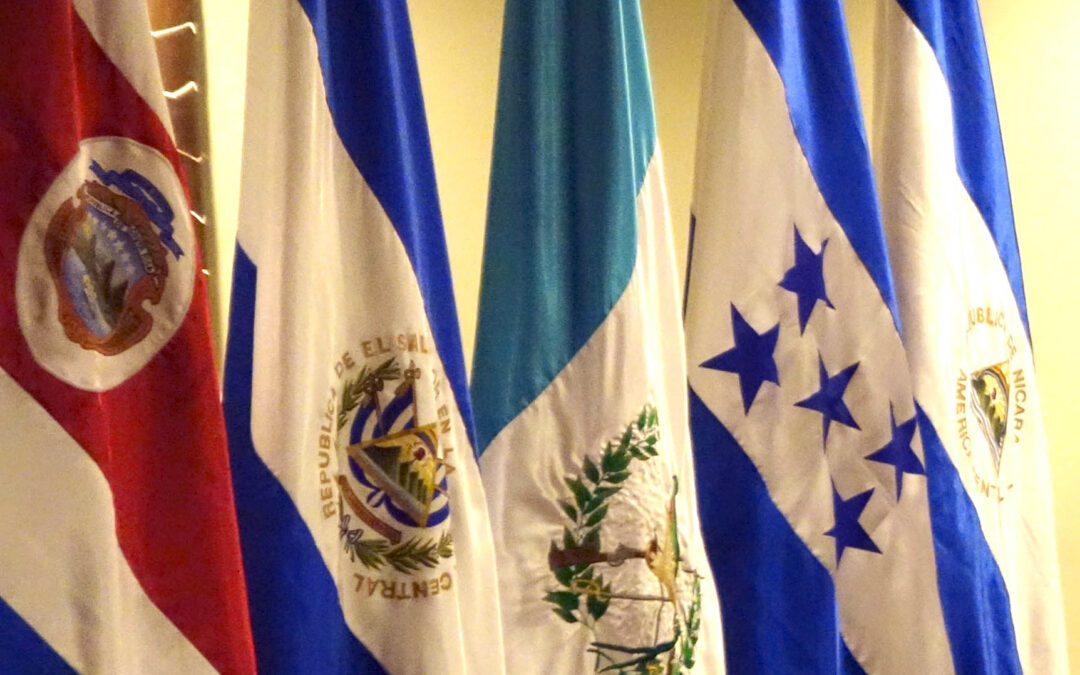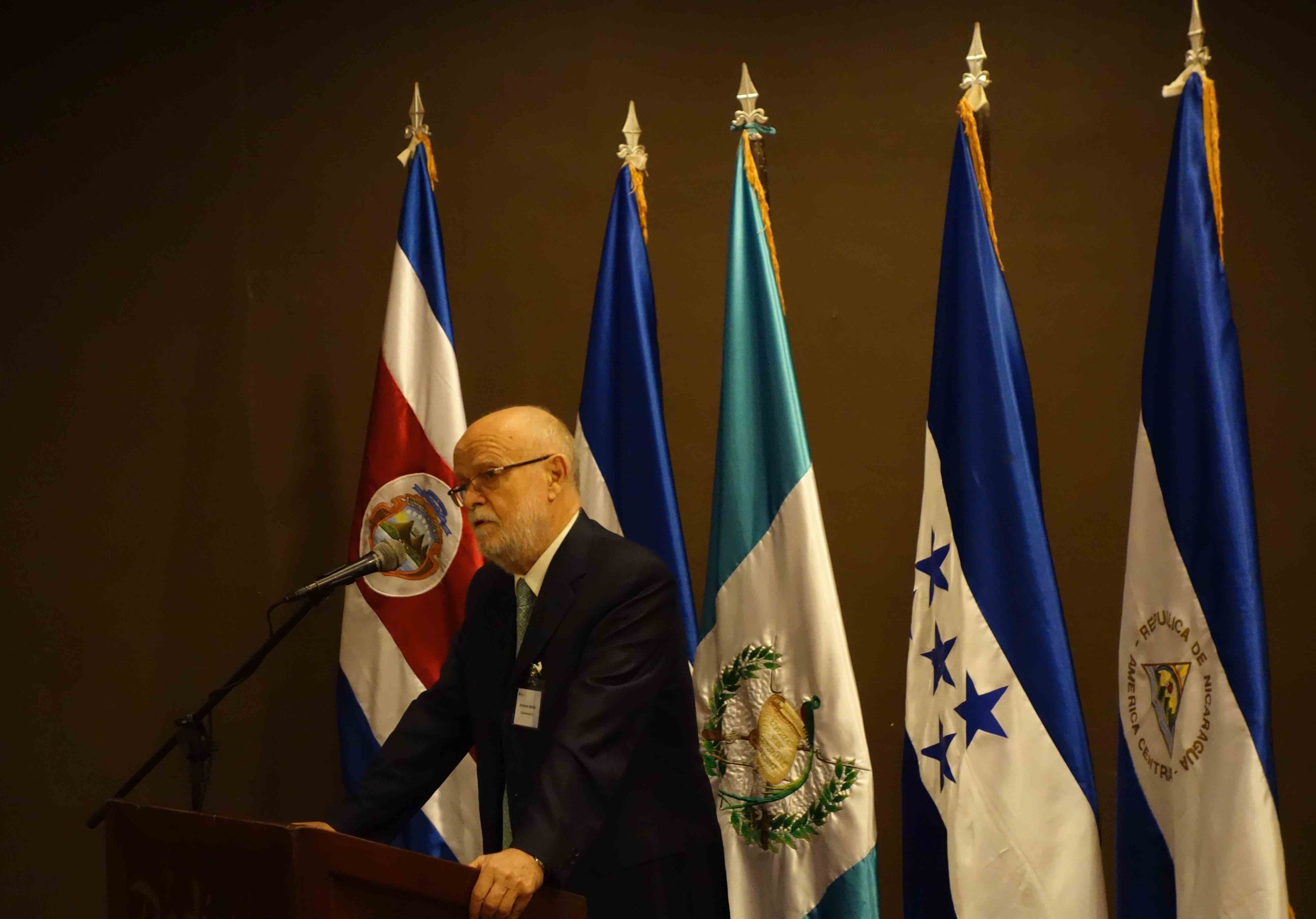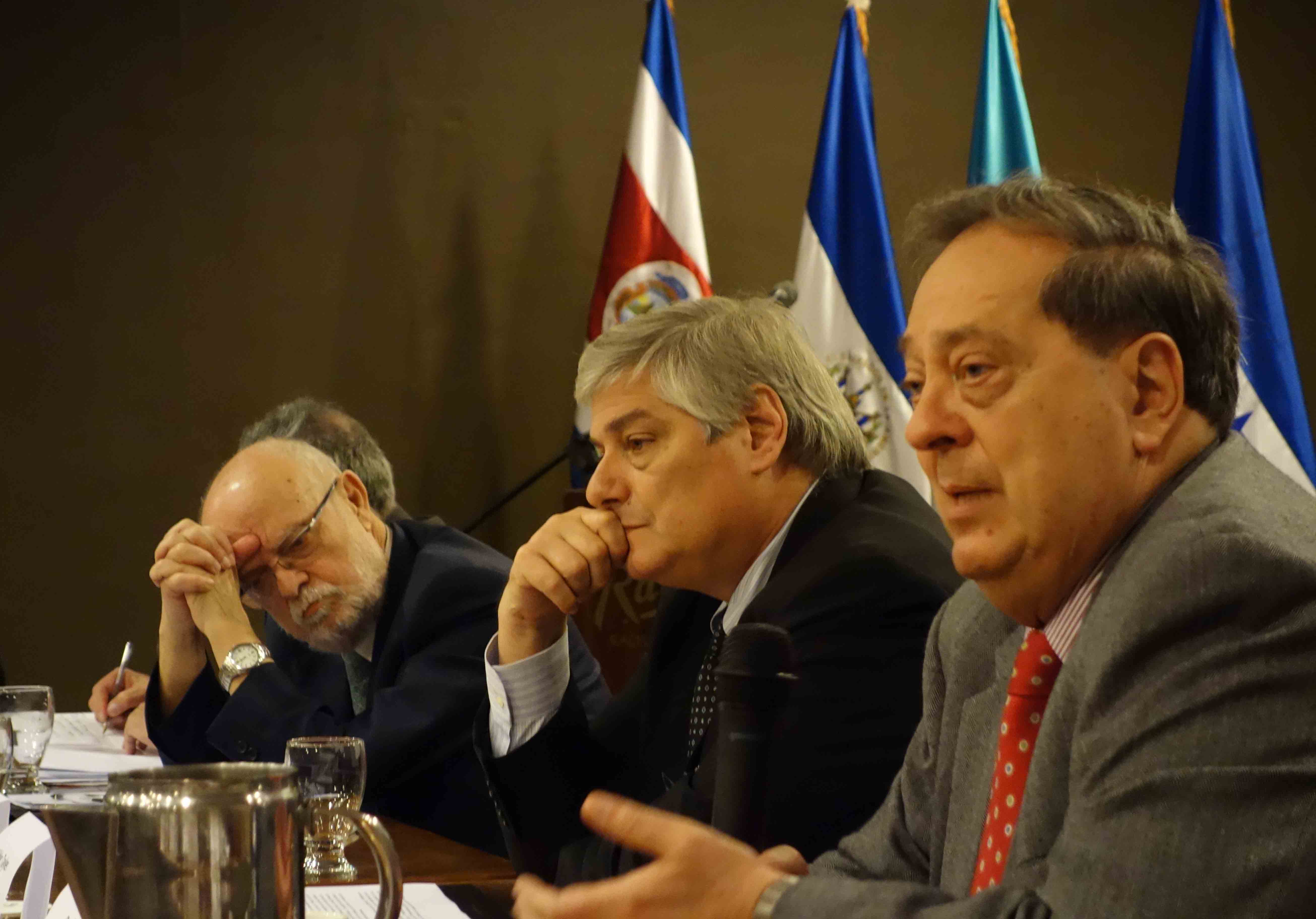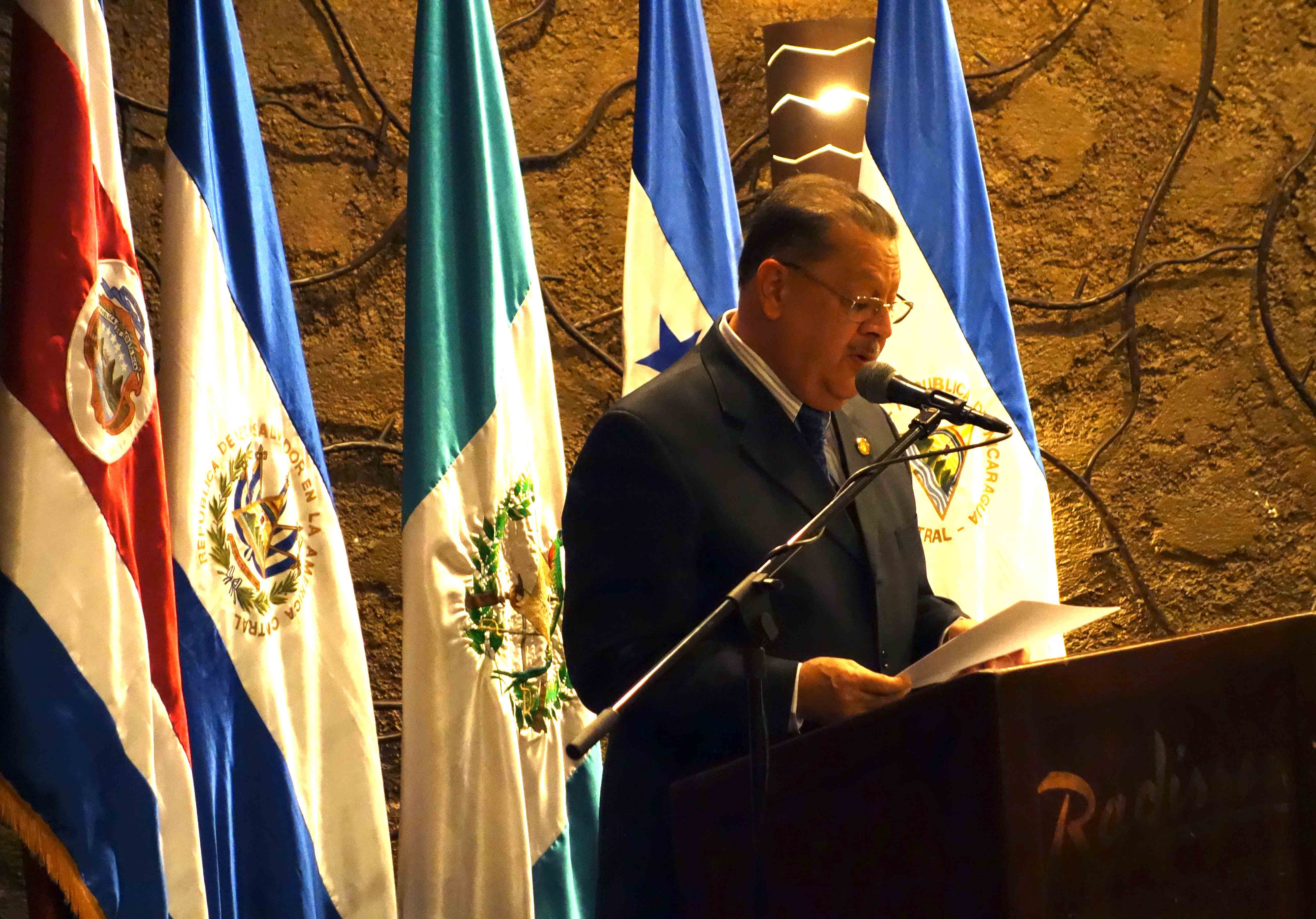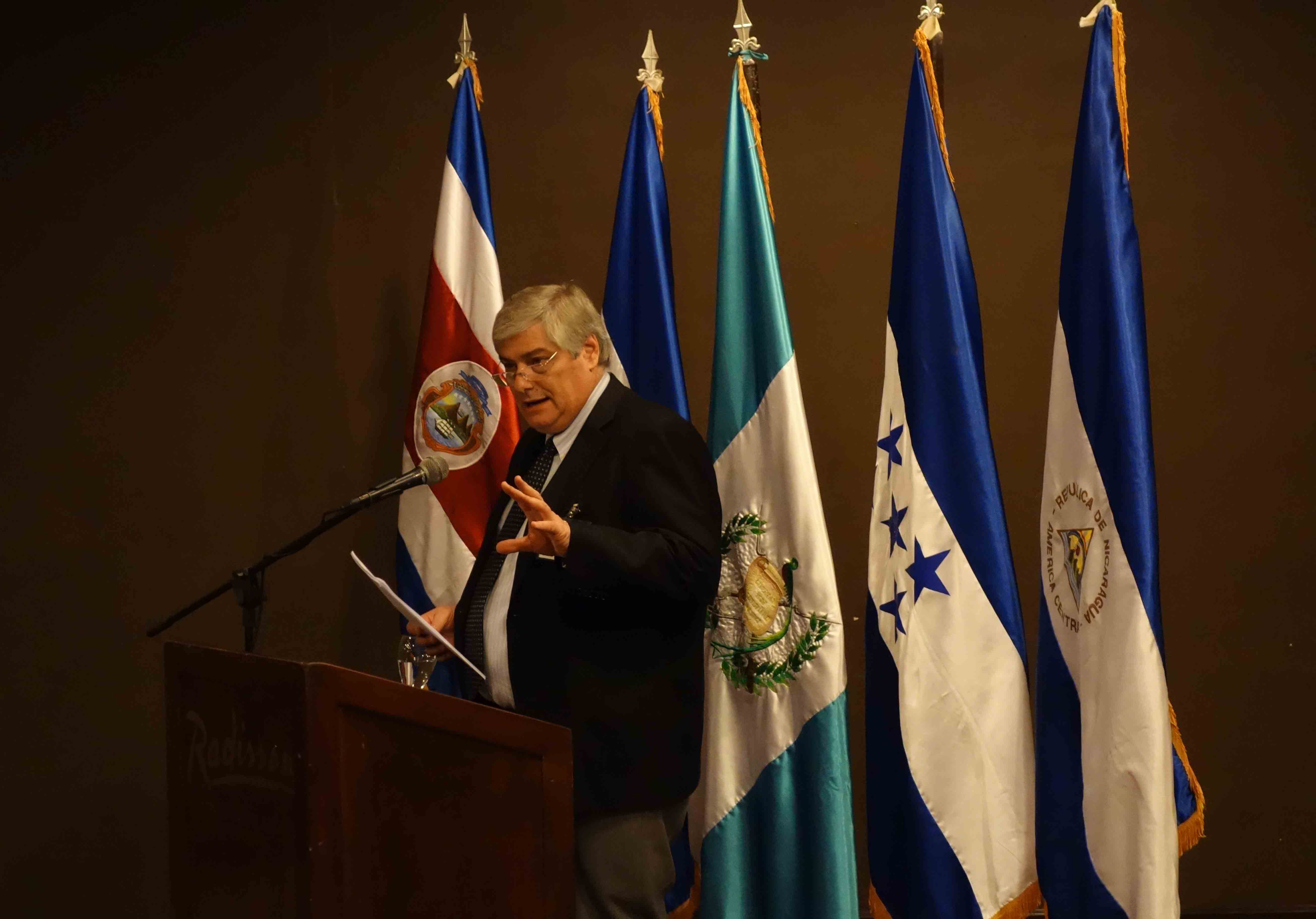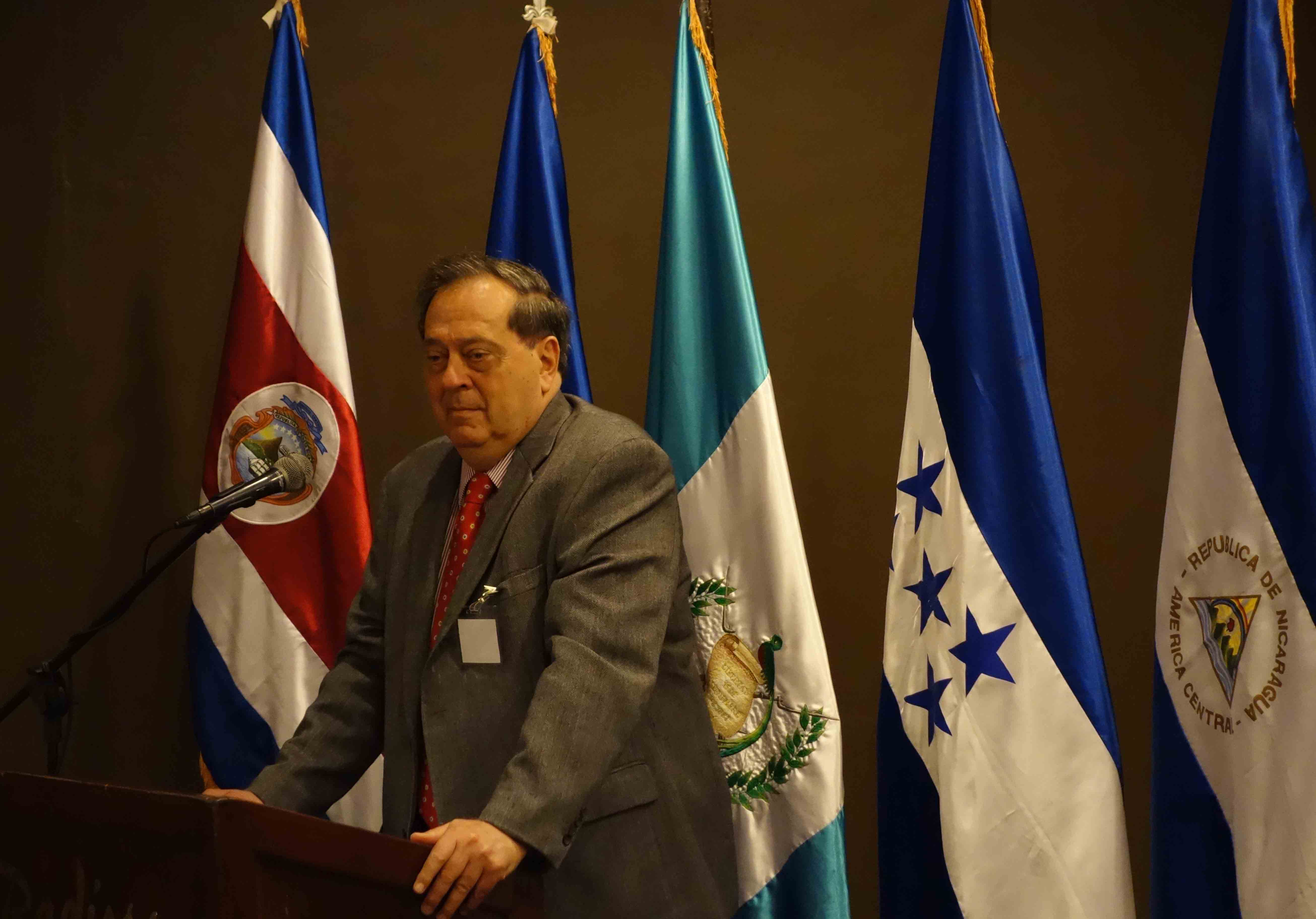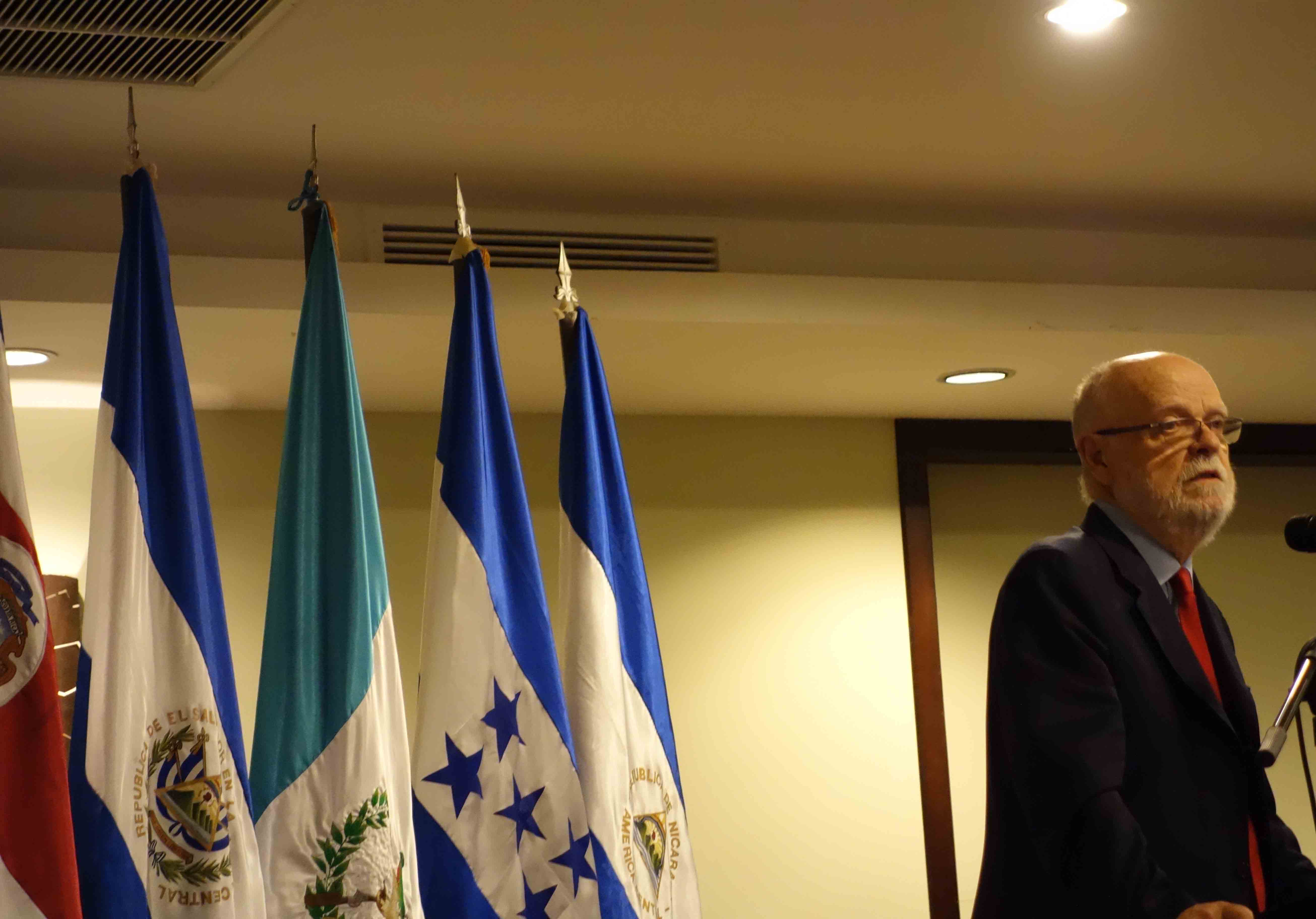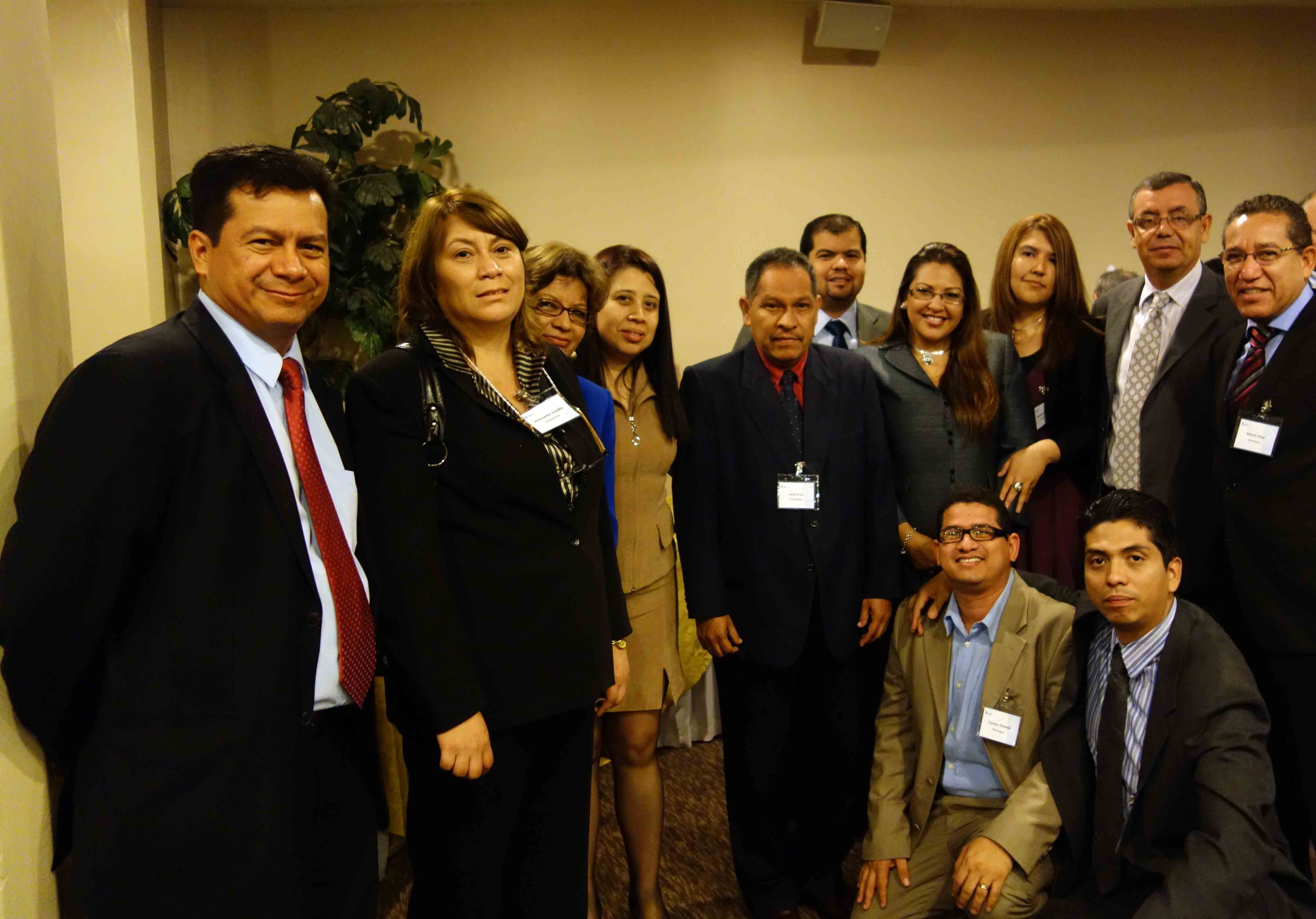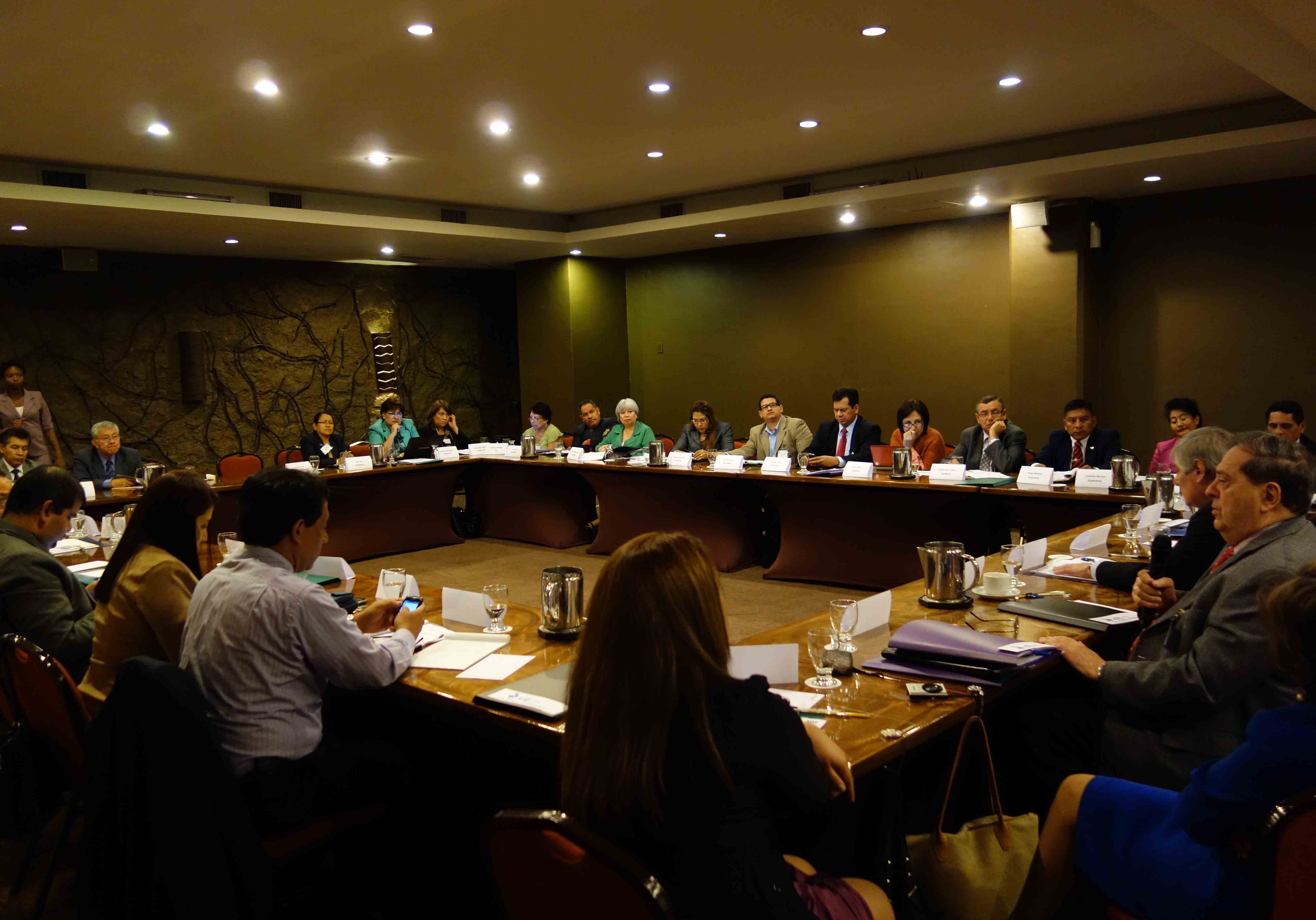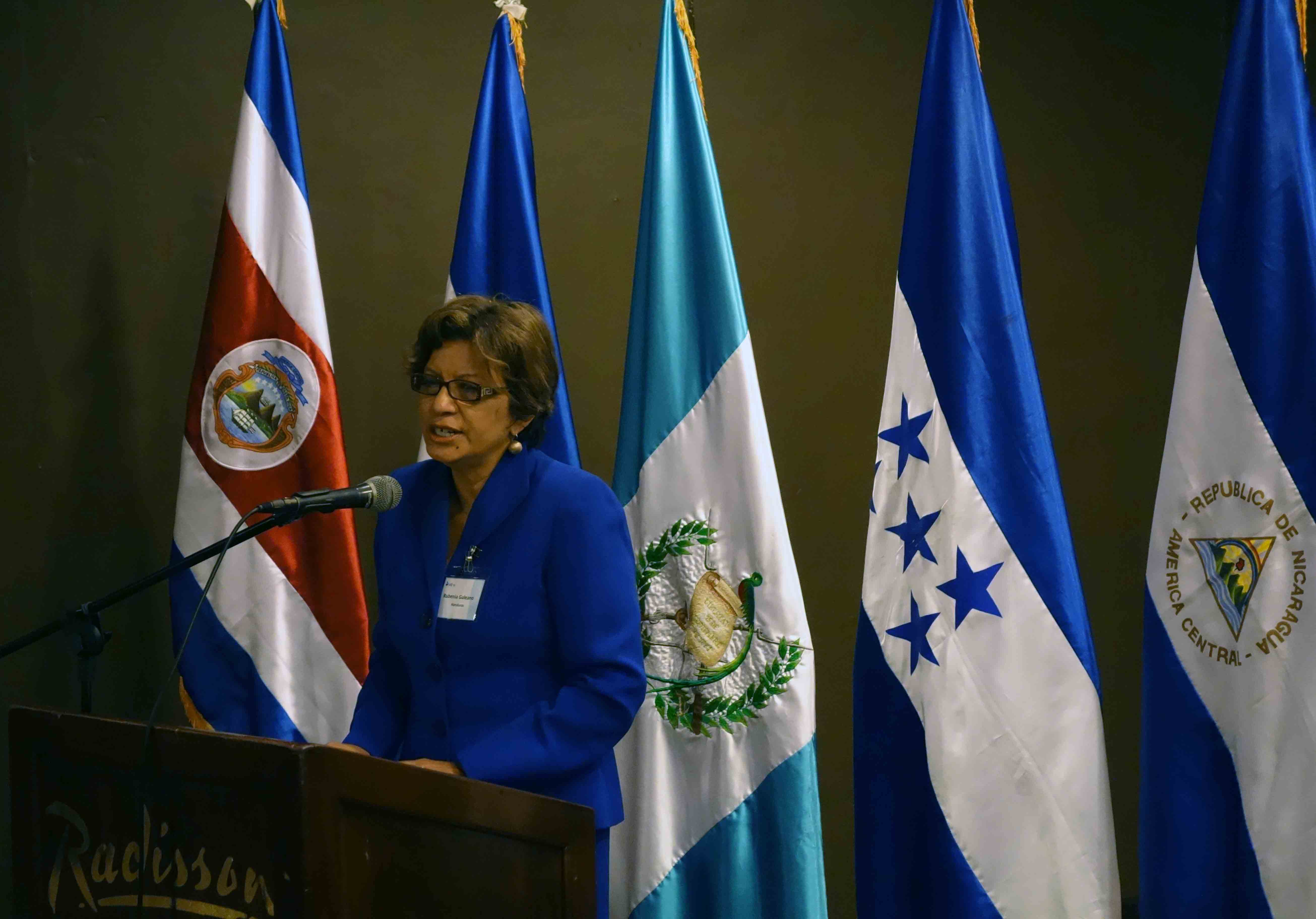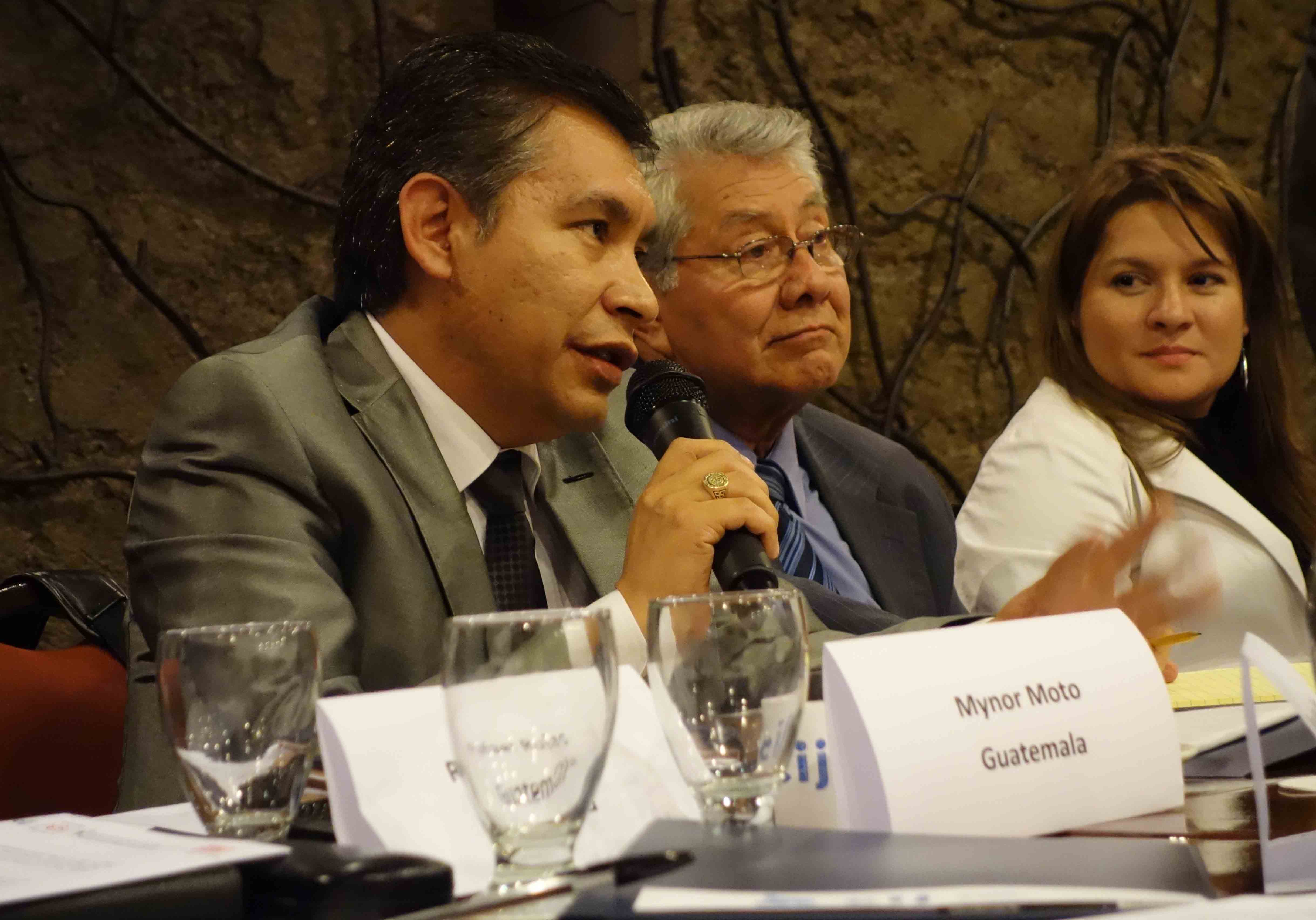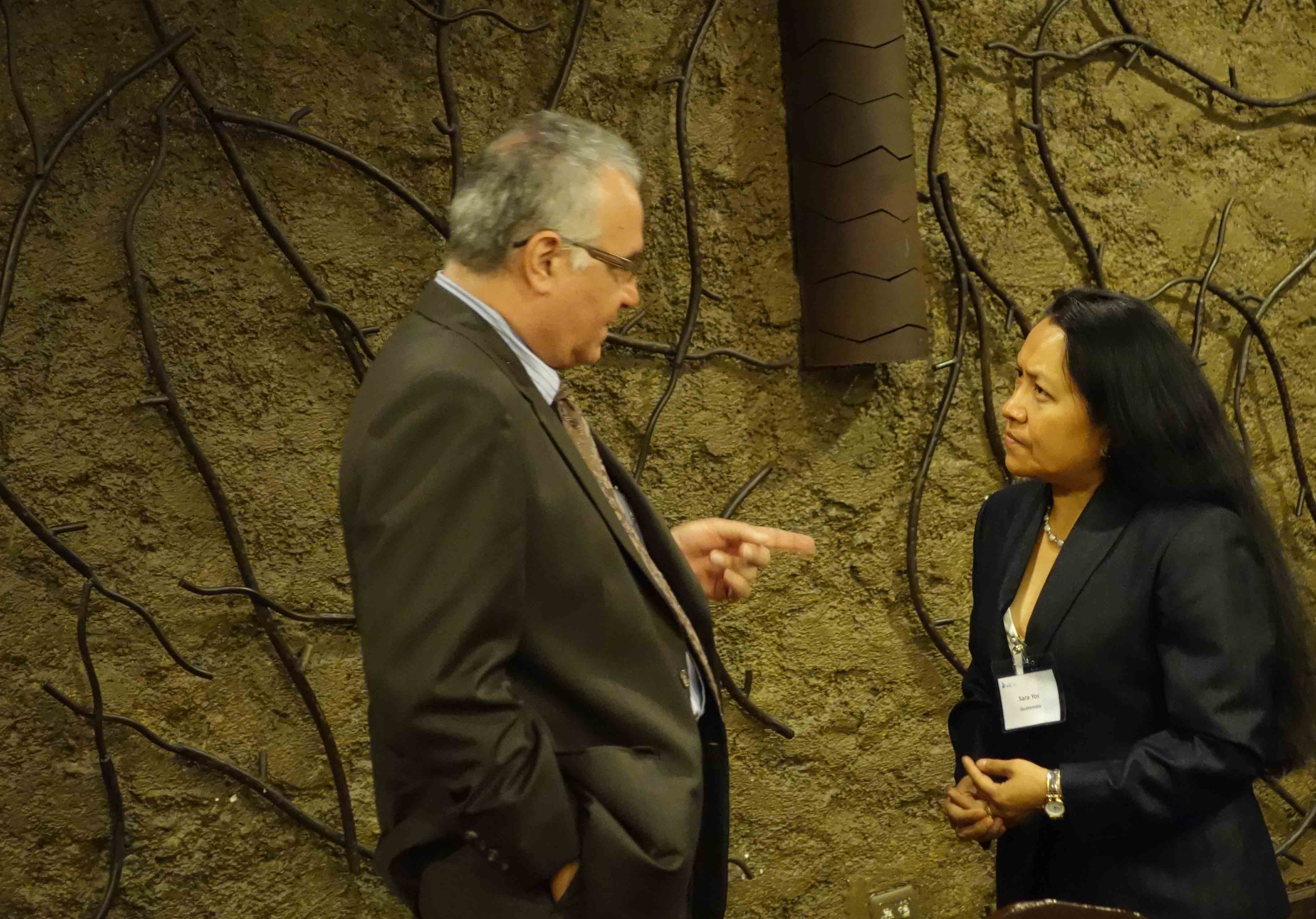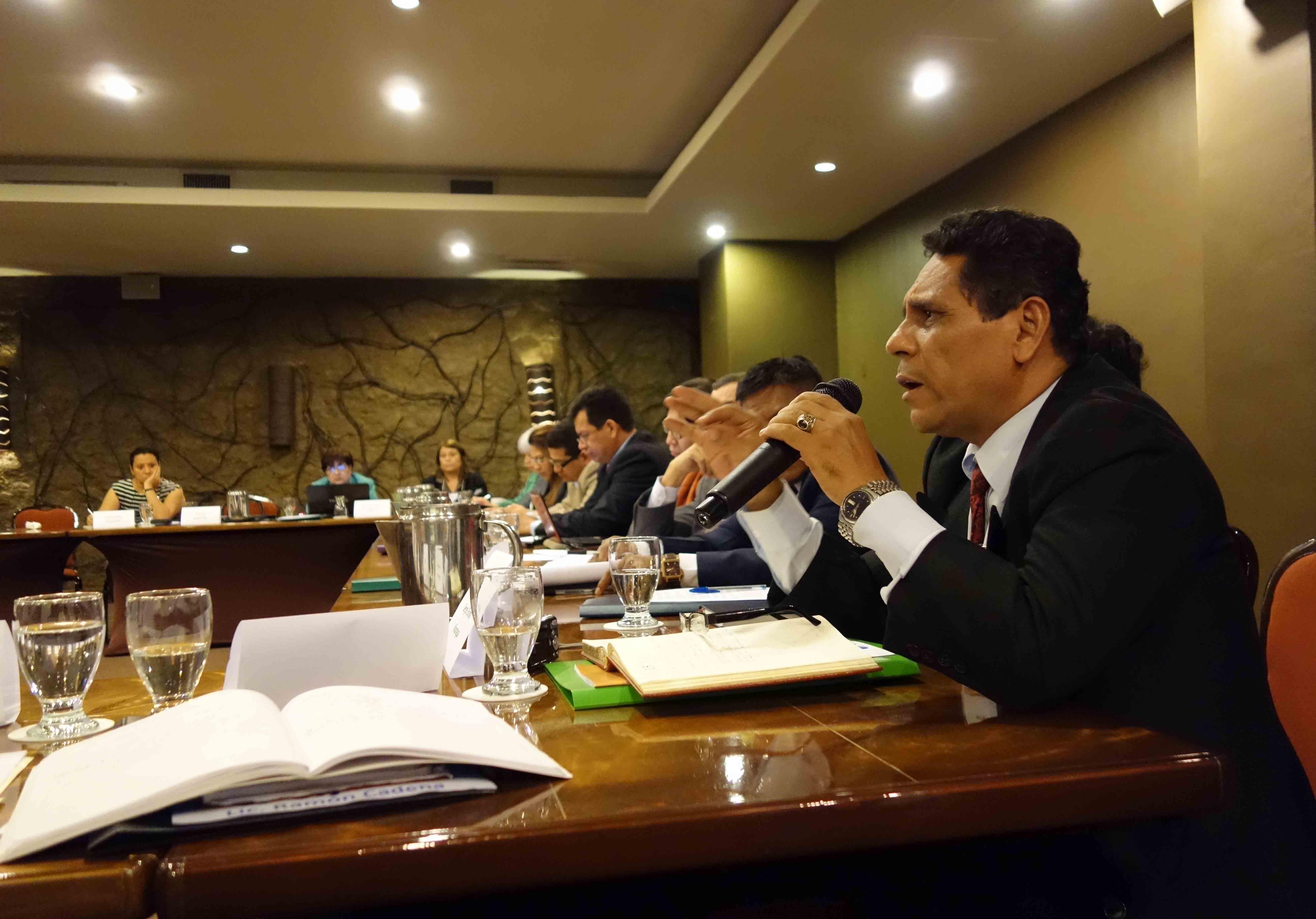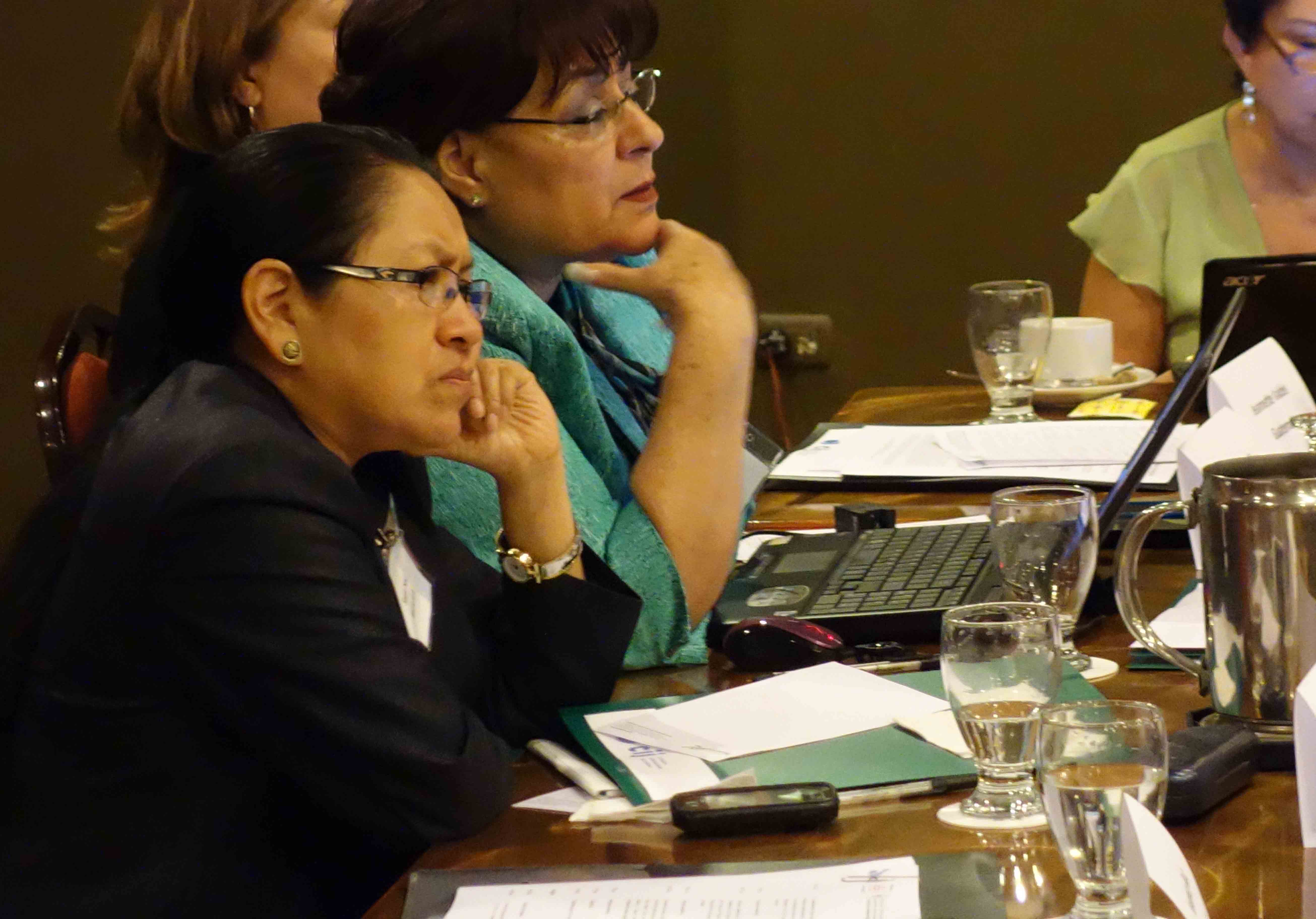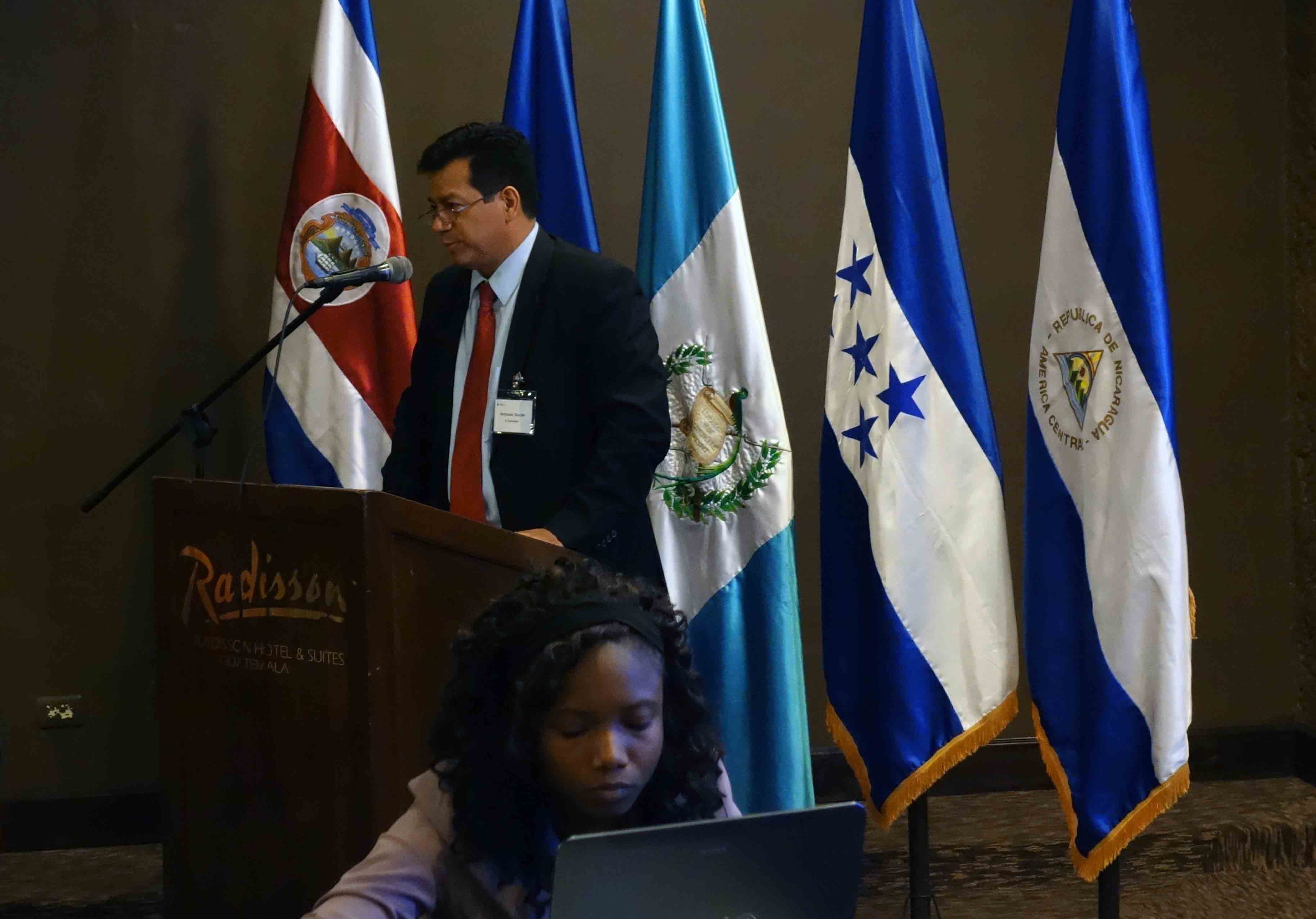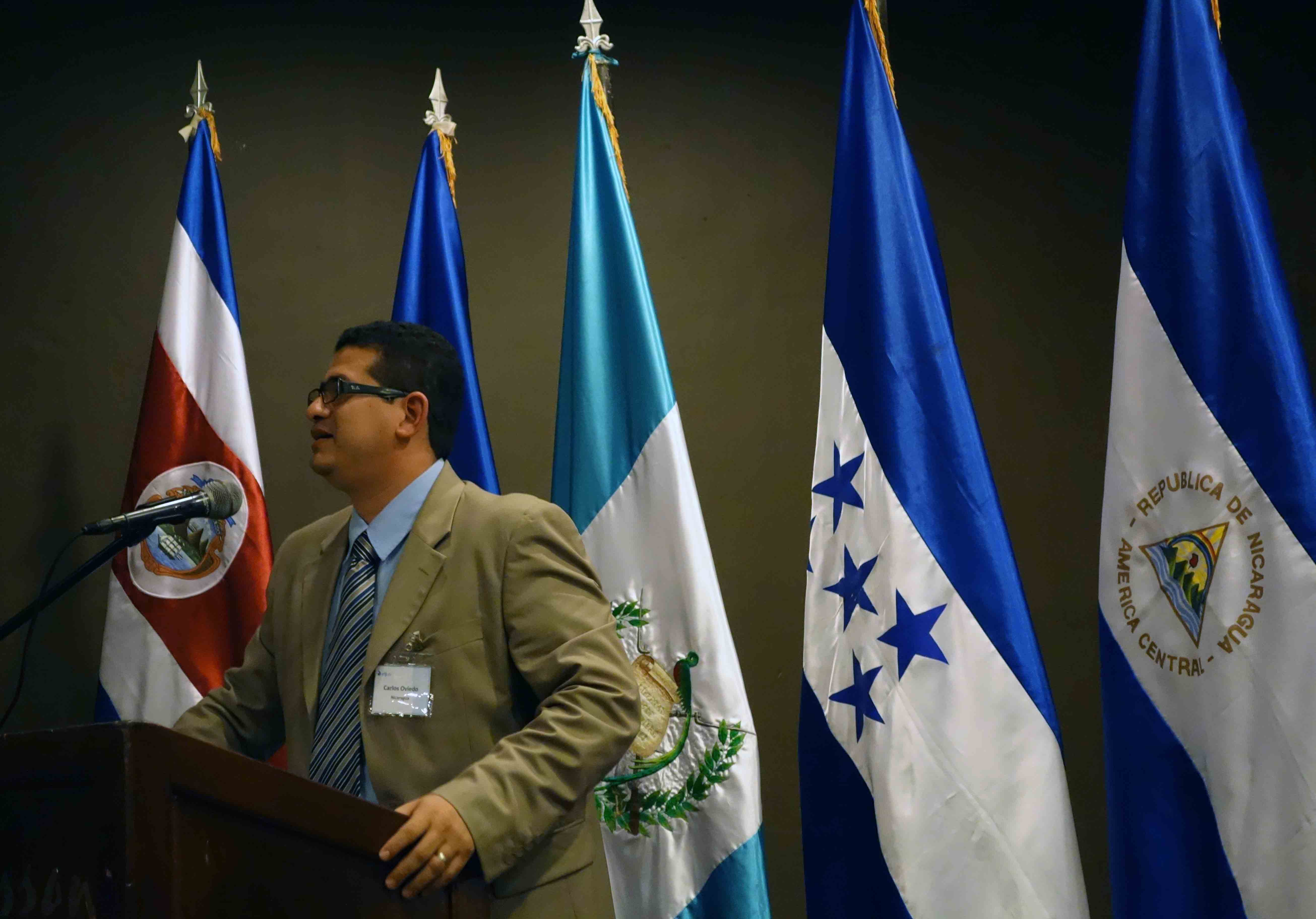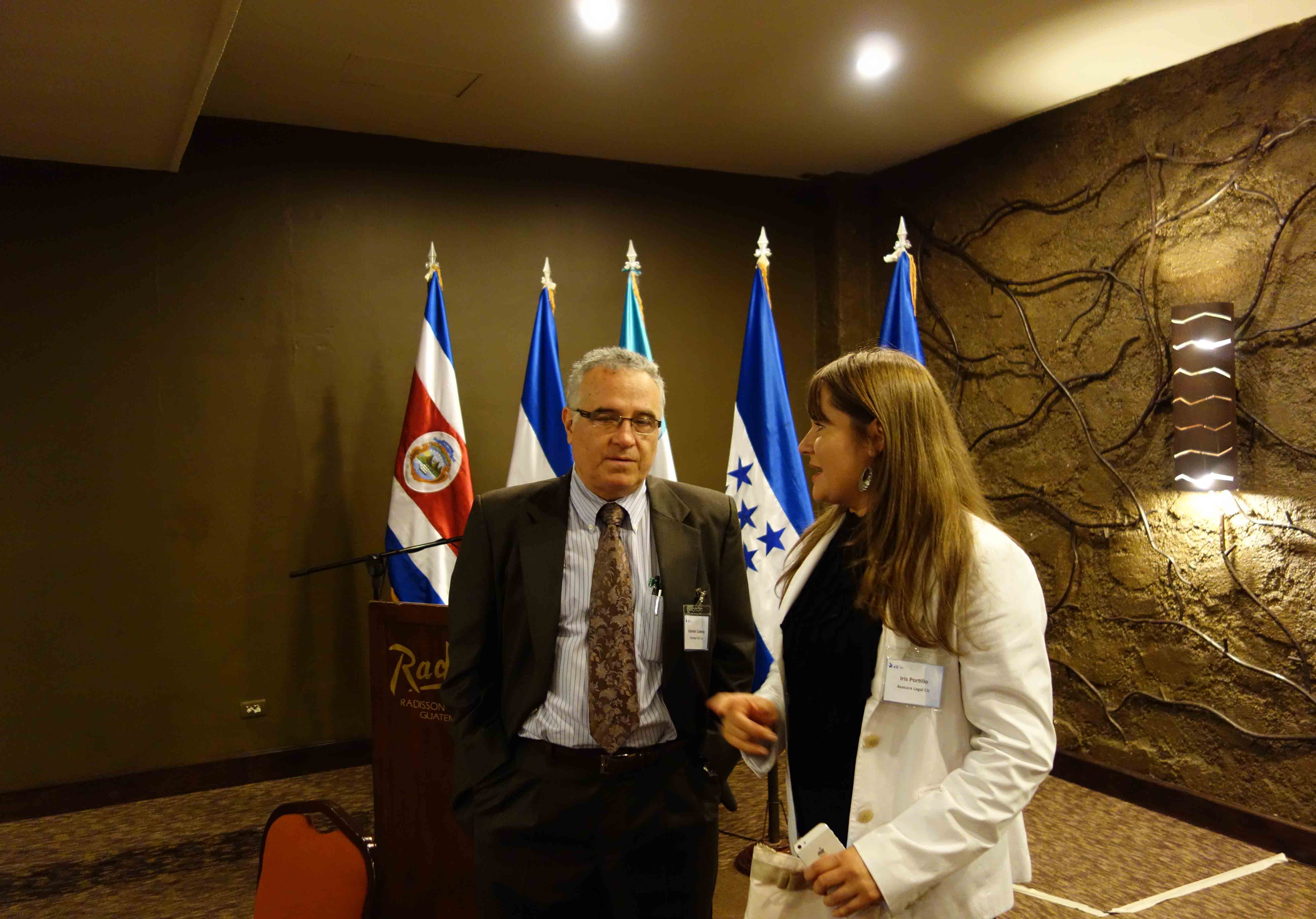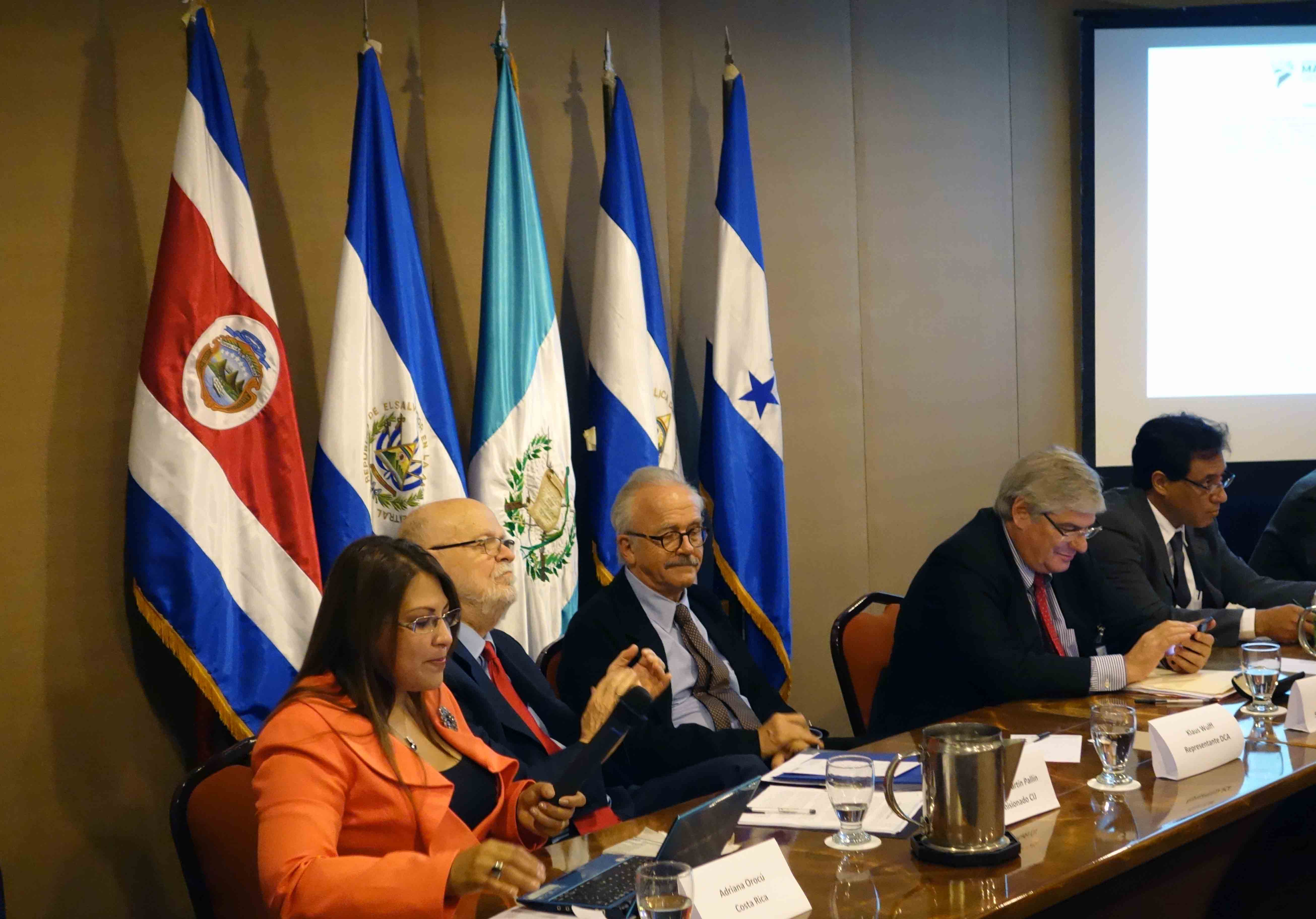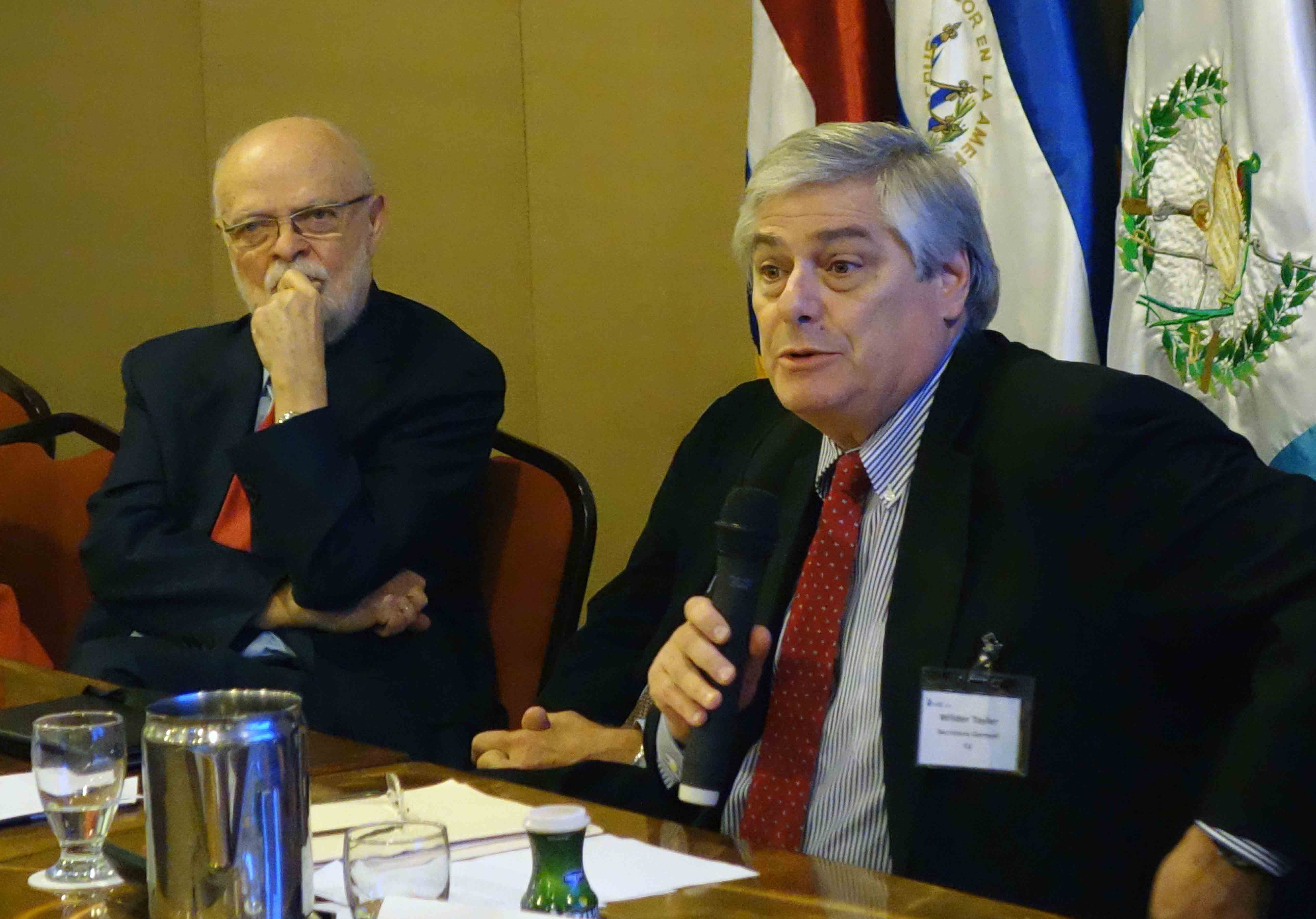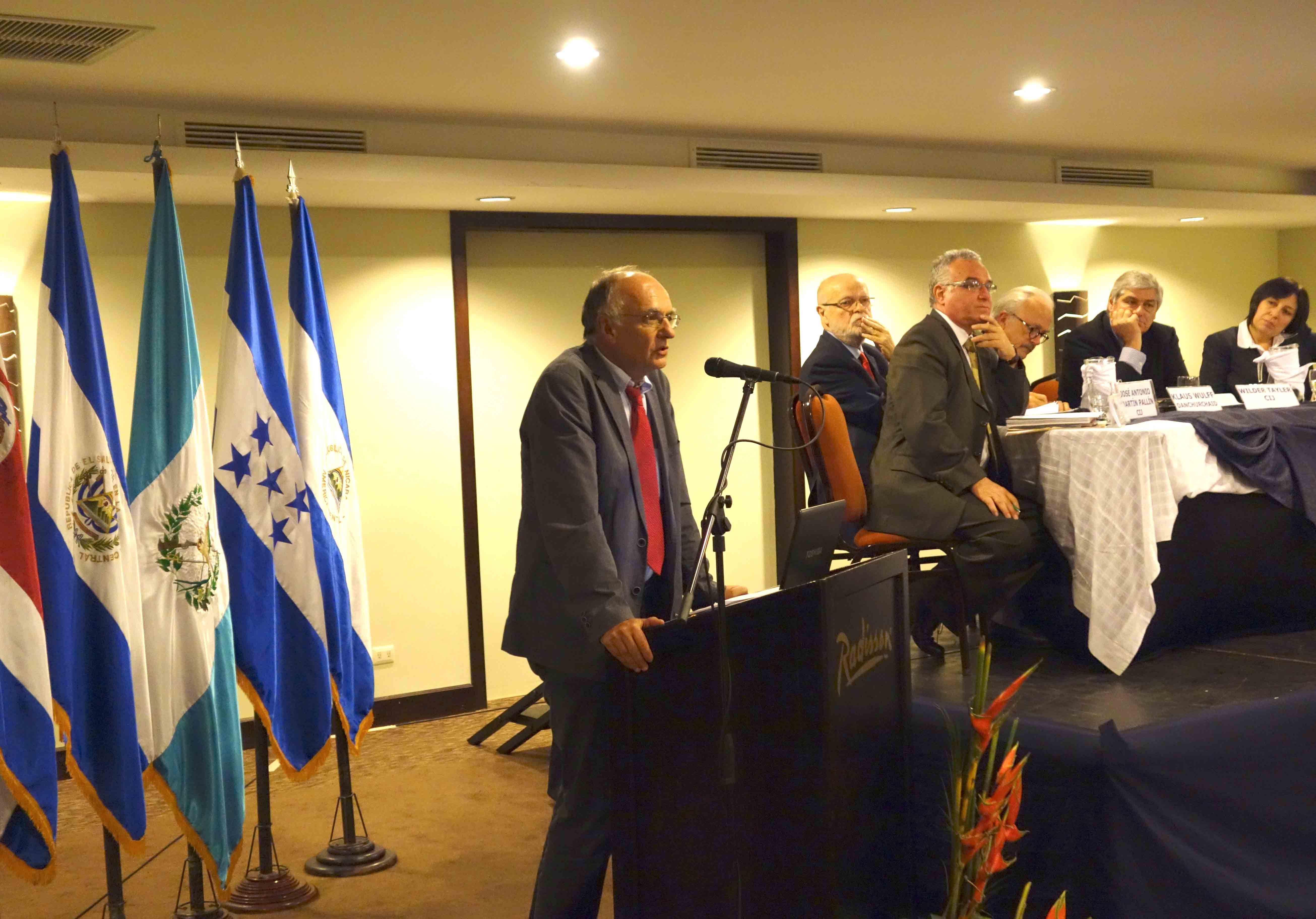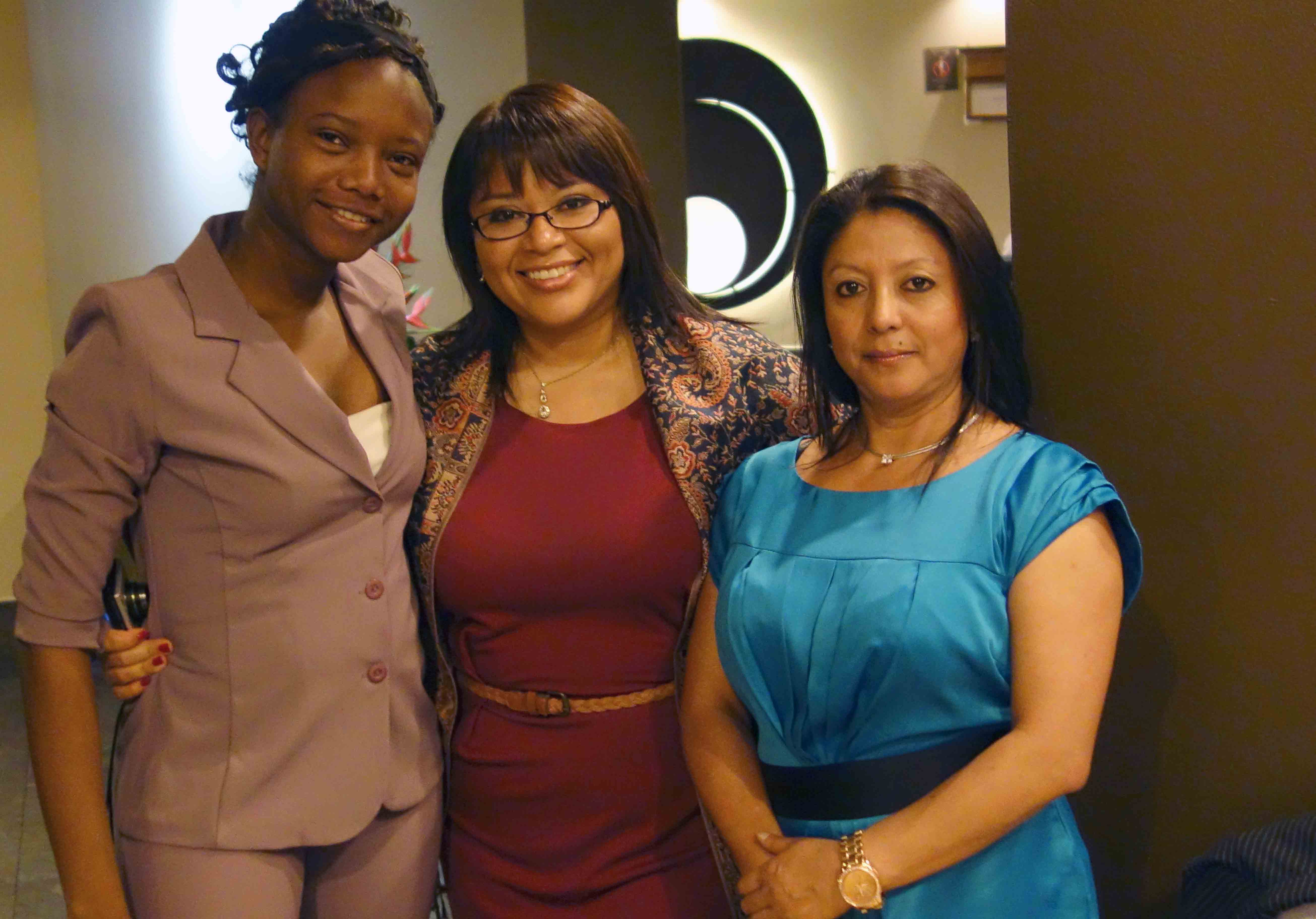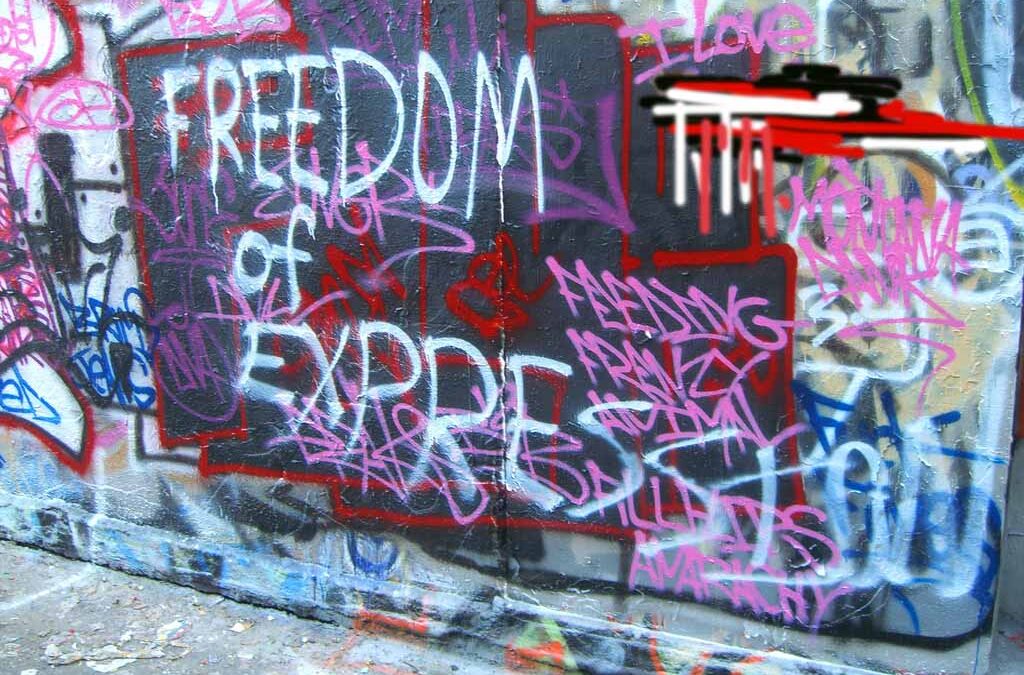
Jun 12, 2013 | News
The Tshwane Principles on National Security and the Right to Information seek to protect the right to information and to ensure public access to information held by governments, without jeopardizing legitimate efforts to protect people from security threats.
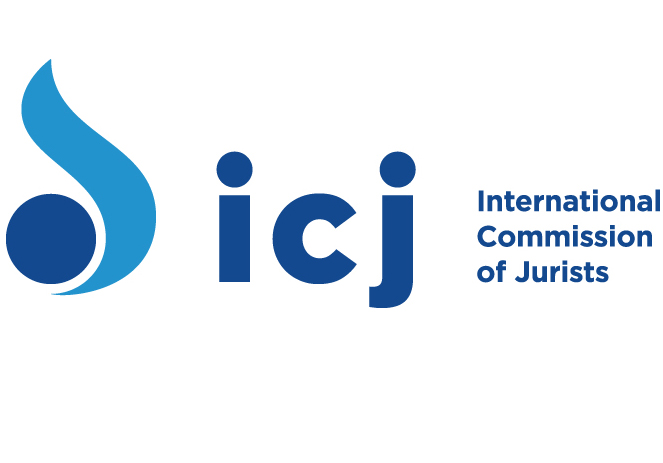
Jun 12, 2013 | Agendas, Events
On Tuesday 11 June 2013, the ICJ convened a parallel event, organised with the Geneva Academy of International Humanitarian Law and Human Rights, during the Human Rights Council’s 23rd regular session held in Geneva.
The event, held in Room XXV of the Palais des Nations, discussed how human rights will be promoted by the Arms Trade Treaty (ATT), including ways to ensure compliance with the ATT and the relevance of the treaty for activities of the Human Rights Council and international human rights experts. The event was chaired by Alex Conte, Director of the ICJ’s International Law and Protection Programmes. Panelists were Simon Bagshaw, Senior Policy Adviser for the UN Office for the Coordination of Humanitarian Affairs; Professor Andrew Clapham, Director of the Geneva Academy of International Humanitarian Law and Human Rights; and Dr Stuart Casey-Maslen, Head of Research at the Geneva Academy of International Humanitarian Law and Human Rights.
Simon Bagshaw provided a background to the treaty from a humanitarian perspective, recognising that the ATT provides an opportunity to address some of the humanitarian impacts and costs of the arms trade. He also stressed the importance of specific elements within the treaty, such as the obligation to refrain from authorising the transfer of weapons where a substantial risk exists that this may result in serious violations of international human rights law or international humanitarian law.
Andrew Clapham and Stuart Casey-Maslen focussed on the human rights perspective. Professor Clapham promoted the use of mechanisms such as the Human Rights Council and its Universal Periodic Review to assist in implementation of the treaty. Dr Casey-Maslen discussed areas that may help ratification, implementation and monitoring of the ATT, including the role of civil society in that regard.
Several questions were raised during discussions concerning how the treaty would work in practice and its broader implications for non-State actors. Panellists confirmed that the ATT includes the facilitation of crimes as enumerated in the treaty and may also cover domestic crimes of terrorism. Since the ATT does not provide for the establishment of fact-finding missions, it was emphasised that civil society will need to act to monitor compliance with the ATT. Panellists also pointed out the important role of the treaty regarding the conduct of non-State actors. Although the treaty sets out obligations for States only, States parties will be responsible for providing licensing to arms manufacturers and private companies working within the weapons industry.
UN HRC-Arms Treaty side event flyer-event-2013 (event flyer in pdf)
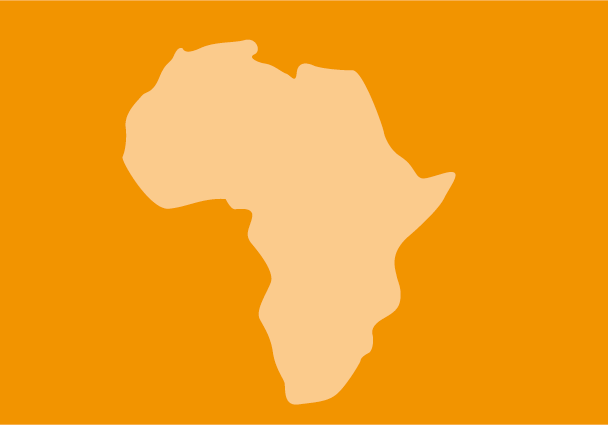
Jun 10, 2013 | Agendas, Events
On Friday 7 June 2013, the ICJ convened a parallel event during the Human Rights Council’s 23rd regular session held in Geneva.
The event, held in Room IX of the Palais des Nations, addressed key issues concerning past and present challenges to the rule of law in Zimbabwe in the context of the upcoming elections and the need for the international community to remain vigilant about the necessity for free, fair and peaceful elections in the country. The event was chaired by Martin Okumu-Masiga, Deputy Director of the ICJ’s Africa Regional Programme. Panelists were MacDonald Lewanika, Director of Crisis Coalition; Okay Machisa, Director of the Zimbabwe Human Rights Association; and Irene Petras, Executive Director of Zimbabwe Lawyers for Human Rights.
Zimbabwe is scheduled to hold general elections before the end of 2013. Past elections in the country have been marred by violence and attacks on human rights defenders and the rule of law more generally. In the period leading to the 2013 elections, there have been several incidents of crackdown on political dissents and independent voices. The impunity enjoyed by past and current perpetrators electoral violence has continued to exacerbate fears for the integrity, peaceful conduct and fairness of the upcoming elections.
Zimbabwe-HR Council side event on elections in Zimbabwe-event-2013 (event flyer in pdf)
ICJ draws attention to risks of violence in the forthcoming general elections in Zimbabwe
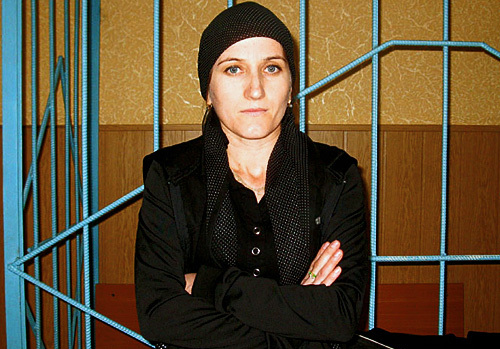
Jun 7, 2013 | Новости, Статьи
Международная комиссия юристов выразила сегодня серьезную озабоченность в связи с угрозами в адрес адвокатов Сапият Магомедовой и Мусы Сусланова.
Угрожавшие требуют прекращения участия адвокатов в деле о предполагаемом убийстве пяти человек.
МКЮ призвала власти принять срочные защитительные меры для обеспечения безопасности адвокатов, получивших угрозы.
8 Мая Сапият Магомедова и Муса Сусланов вступили в дело для представления интересов родственников бывшего депутата местного парламента Магомеда Гамзатова, его братьев Османа, Юсупа и Газидибира и их двоюродного брата Магомед Омаров. Мужчины были убиты из огнестрельного оружия в городе Кизляр в Дагестана 18 марта.
По словам родственников, стрельба произошла в результате конфликта личного характера. В связи с убийством было возбуждено уголовное дело, и несколько человек были арестованы.
Тем не менее, родственники погибших утверждают, что они находятся под непрерывным наблюдением и на них оказывалось давление. Как сообщается, свидетели по опасаются давать показания по делу.
С самого начала адвокаты стали подвергаться запугиванию, включая угрозы о том, что их офисы будут подожжены или взорваны вместе с адвокатами. Подобные угрозы передавались через знакомых этих адвокатов.
19 и 20 мая, после того, как адвокаты объявили о своей более активной работе по делу, в том числе о привлечении дополнительных свидетелей, адвокаты получили смс сообщения с предупреждениями, что они должны отказаться от дела, что являлось их “шансом остаться в живых”.
Другое сообщение содержало требование отказаться от своего участия в деле, и “не соваться куда им не следует”.
МКЮ считает, что существует непосредственная опасность для жизни и физической безопасности адвокатов, особенно принимая во внимание недавнее дело об убийстве в Дагестане адвоката.
20 января 2012 года, в Дагестане был застрелен адвокат с предполагаемым участием сотрудников сил безопасности. Согласно информации, полученной МКЮ, дело до сих пор не было надлежащим образом расследовано, и никто не был привлечен к ответственности.
МКЮ напоминает, что в соответствии с международным правом и стандартами, Россия приняла на себя обязательства по защите права на жизнь лиц в случаях, когда существует реальная и непосредственная угроза для жизни человека от преступных действий третьих лиц.
Основные принципы ООН, касающиеся роли юристов предусматривают, что в случаях “когда возникает угроза безопасности юристов в результате выполнения ими своих функций, власти обеспечивают им надлежащую защиту».
Эффективные действия по защите адвокатов должны включать необходимые меры безопасности, такие как полицейское наблюдение и обеспечение охраной. Данные угрозы убийством являются преступным актом.
МКЮ призвала Российские власти оперативно и тщательно расследовать эти угрозы и привлечь виновных лиц к ответственности в справедливом судебном разбирательстве.
Контакты:
Роушин Пиллей, директор Региональной программы МКЮ по Европе, roisin.pillay(a)icj.org
Тимур Шакиров, правовой советник Региональной программы МКЮ по Европе, temur.shakirov(a)icj.org
Lawyer-deaththreats-Russia-rus (полное изложение на русском, PDF)





